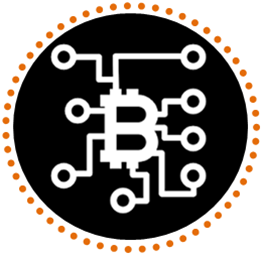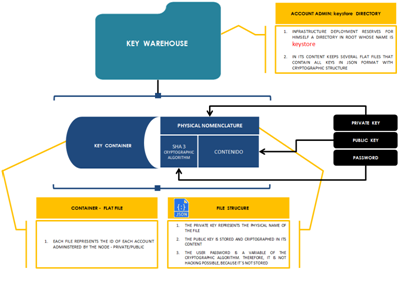BlockChain

BlockChain is transforming transactional networks, with a protocol for distributed ledgers in multiparty business processes.
The key is the immutability of records driving total transparency, auditability, and provide "The rules of Trust".
Its allow real-time value transfers and reduces risk, no unnecessary intermediaries, supporting all this from Smart Contracts: with System-enforced intercompany business rules.

Distributed registration -analogy between LEDGER and DISTRIBUTED LEDGER- "democratizes" the identification, authentication and transparency of transactions through "peer-to-peer between validation" without third party intermediation. Who dominates BlockChain ... will dominate the "Rules of Trust" since BlockChain technology eliminates the need for a third party to establish connections with each other. All have the same information, therefore, the rules of trust are validated by the community itself, guaranteeing the security, transparency and reliability of any transaction.
In order to the kind of exploitation and application of the BlockChain Model, the focal point is the management and control of NODES. Therefore, the Platform provides the ability to create and manage Own Infrastructures and deploy distributed applications that allow executing transactions dependent on smart rules.

Having control of the NODE gives us substantial advantages. The most relevant ones: It acts as Account Admin, therefore it allows us to control the list of public keys managed by our activity.
 Although the content is cryptographic and there is no possibility of access, only who has the privilege of Account Admin is the one who can authenticate and therefore sign the transaction. Having control of the NODE gives us substantial advantages. The most relevant ones: It acts as Account Admin, therefore it allows us to control the list of public keys managed by our activity. Although the content is cryptographic and there is no possibility of access, only who has the privilege of Account Admin is the one who can authenticate and therefore sign the transaction. Later the consensus of the Community will be in charge of validating it at time of mining of the Block. It allows us to run the Ethereum Stat and Last Block reports displaying the activity of the filtered BlockChain Net. It means that it offers us the possibility of monitoring the activity of our nodes in a detailed way and being able to deliver the same view to our clients. It allows us to distribute processes between NODES.
Although the content is cryptographic and there is no possibility of access, only who has the privilege of Account Admin is the one who can authenticate and therefore sign the transaction. Having control of the NODE gives us substantial advantages. The most relevant ones: It acts as Account Admin, therefore it allows us to control the list of public keys managed by our activity. Although the content is cryptographic and there is no possibility of access, only who has the privilege of Account Admin is the one who can authenticate and therefore sign the transaction. Later the consensus of the Community will be in charge of validating it at time of mining of the Block. It allows us to run the Ethereum Stat and Last Block reports displaying the activity of the filtered BlockChain Net. It means that it offers us the possibility of monitoring the activity of our nodes in a detailed way and being able to deliver the same view to our clients. It allows us to distribute processes between NODES.
The main settlement is based on Development of Business Logic through distributed applications (DApps) -which allow to establish a communication interface with the End User- and Smart Contracts -which allow to model the execution rules under the Action-Reaction principle-.
 Distributed Applications: Unlike typical Apps that are centralized applications since the trust is deposited in a main entity -for instance, a server or a data bank- the DApps are decentralized applications, where trust is based on the community and are not controlled by any authority and neither require any other intermediary entity for working. They just need the chain of blocks to express themselves...
Distributed Applications: Unlike typical Apps that are centralized applications since the trust is deposited in a main entity -for instance, a server or a data bank- the DApps are decentralized applications, where trust is based on the community and are not controlled by any authority and neither require any other intermediary entity for working. They just need the chain of blocks to express themselves...
 Smart Contracts: These are code capsules programmable, autonomous, self-operative, distributed all nodes, impossible to alter and therefore immutable. It means that it will always have the same behavior without requiring the action of a third party, in a predictable environment, transparent and incorruptible and that will be executed automatically when the specific conditions defined in itself are met.
Smart Contracts: These are code capsules programmable, autonomous, self-operative, distributed all nodes, impossible to alter and therefore immutable. It means that it will always have the same behavior without requiring the action of a third party, in a predictable environment, transparent and incorruptible and that will be executed automatically when the specific conditions defined in itself are met.

